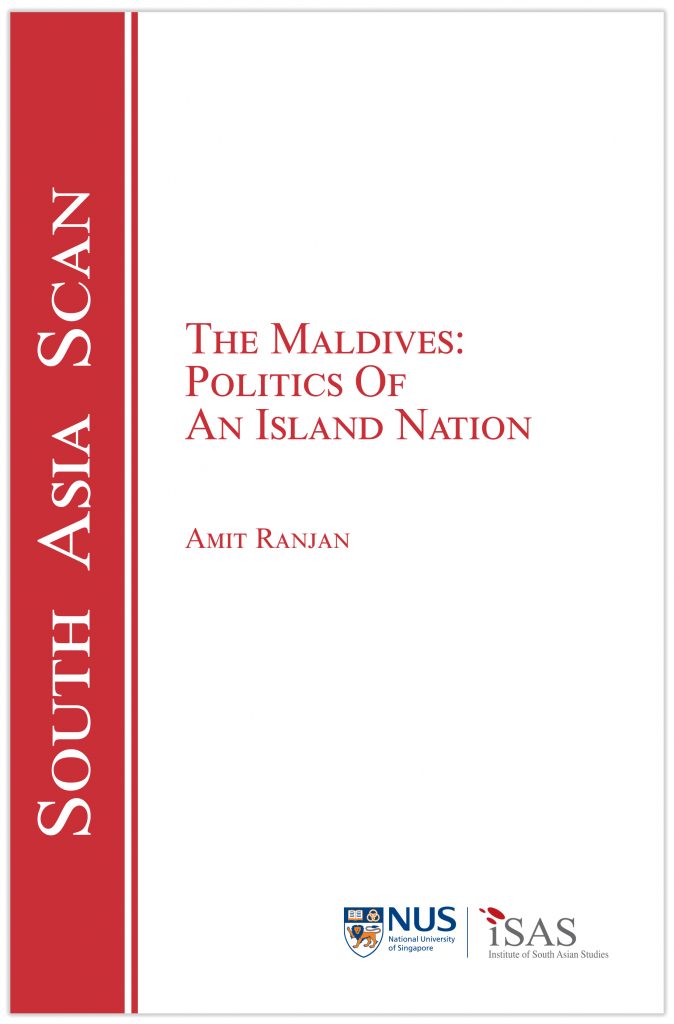
| Title: | The Maldives: Politics Of An Island Nation |
| Author/s: | Amit Ranjan |
| Abstract: | In 2018, the Maldives removed President Abdulla Yemeen, who ruled the country as an authoritarian since 2013. During his term, the civil and political rights of the citizens were curtailed. Also, several leaders from the opposition parties as well as several political and civil right activists were tortured, beaten or incarcerated. To silence the dissenters, Yameen imposed emergency rule twice, the first in 2015 followed by the second in 2018. This publication briefly touches on the political history of the Maldives. It then examines recent domestic socio-economic political developments in the country as well as its foreign policy imperatives. |
| Date: | 26 December 2019 |
| Read More |
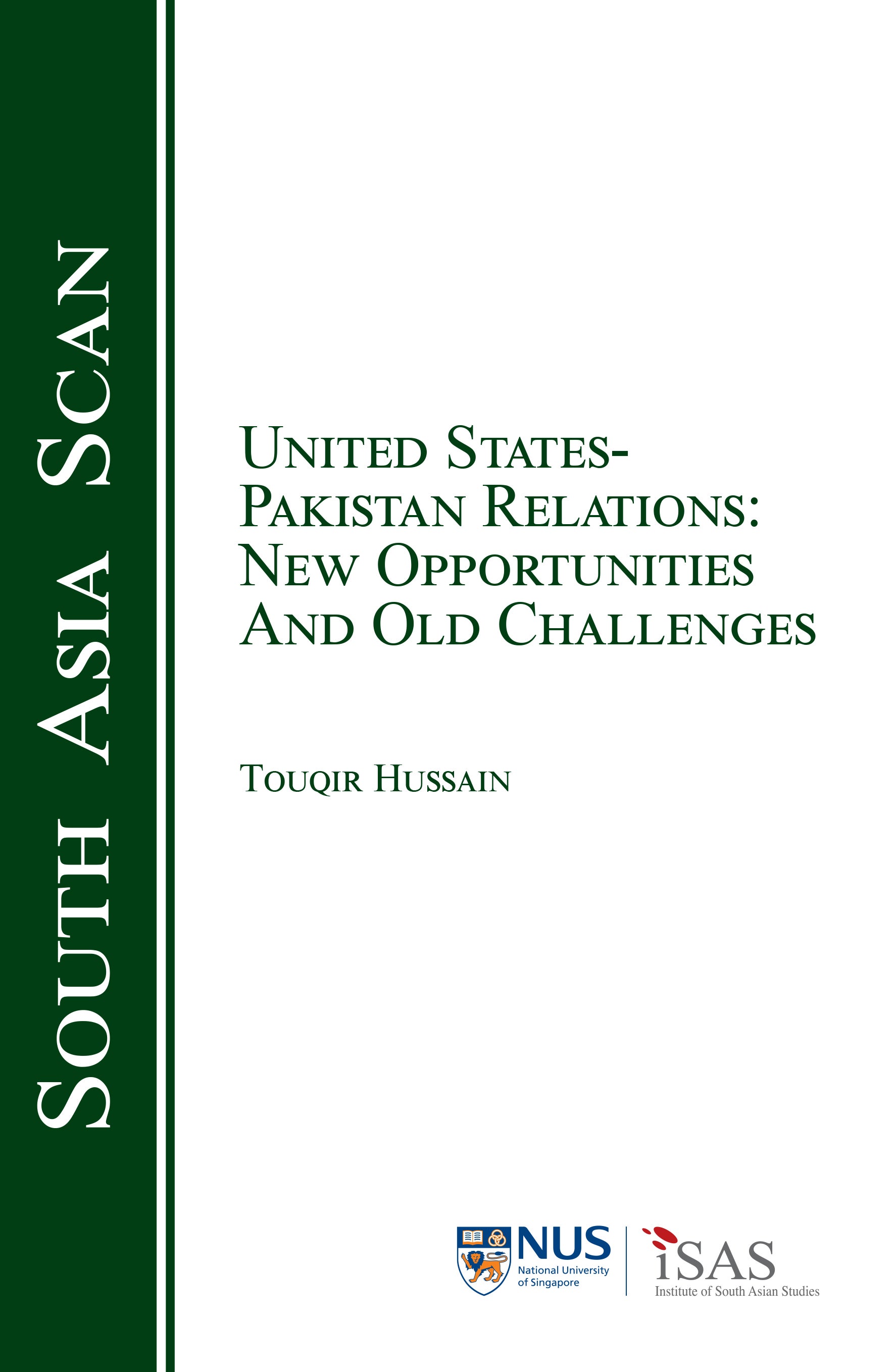
| Title: | United States-Pakistan Relations: New Opportunities And Old Challenges |
| Author/s: | Touqir Hussain |
| Abstract: | United States (US)-Pakistan relations are arguably one of the most talked about but also one of the least understood. The fundamental problem in the relations has been that the interests of the two countries have largely differed. And even on shared interests, their policies, perceptions and politics have often differed. In each of their three alliances so far, they have been allies on one issue and antagonists on another. They were dealing with strategic issues but lacked a strategic convergence and framework. As a consequence, while some of their vital interests were served, some others were harmed. They lost as much as they gained from the relationship. |
| Date: | 13 November 2019 |
| Read More |
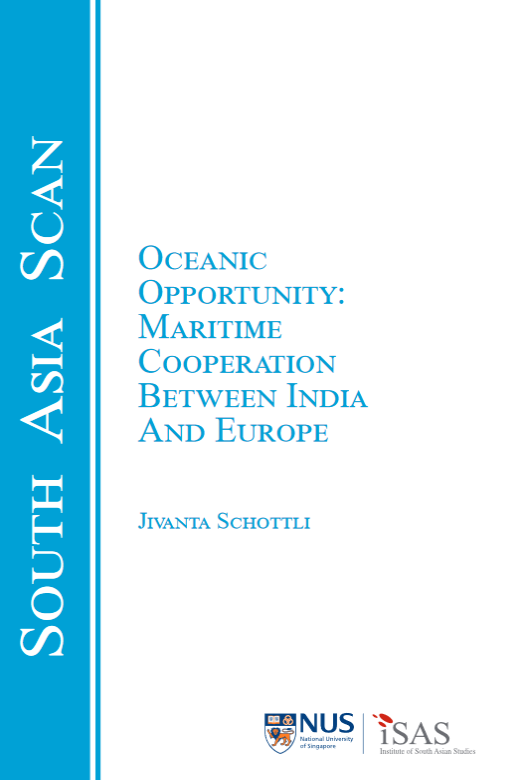
| Title: | Oceanic Opportunity: Maritime Cooperation Between India And Europe |
| Author/s: | Jivanta Schottli |
| Abstract: | India and Europe share a common vested interest in maritime security, especially within the context of the Indian Ocean, which brings India and the European Union (EU) physically closer, thanks to the French overseas territory of La Réunion, an outermost part of the EU. Over the years, formal security cooperation between India and various European actors, including the EU has been slow to emerge. However, as a long-time provider of maritime security for the international sea lines of communication (SLOC), India’s naval diplomacy and humanitarian and disaster relief (HADR) missions have provided a public good that has also benefitted European markets, businesses and citizens, enabling the global traffic of trade, people and energy flows that criss-crosses the Indian Ocean. The EU on the other hand, is a more recent maritime security actor, principally active within the Horn of Africa and the wider Western Indian Ocean, an area of particular security interest to India. Both India and the EU, especially in the context of global economic and political uncertainties, have expressed the strategic goal to enhance maritime activities and capacity. Official pronouncements have identified the importance of building on established networks and cumulative operational expertise but also note the urgent need to enhance cooperation with partners. For India and the EU, which do not regard each other as strategic competitors and in fact hold in common the ideal of strategic autonomy as a guiding principle for foreign policy decisions, the opportunity for convergence on maritime issues, could not be greater. The paper is divided into four parts, the first of which examines institutional arrangements and ideas that in the past may have prevented convergence but which could act as the framework for renewed efforts at security cooperation. Part two and three explore the areas where India and the EU have expertise as maritime security providers and the limited collaboration and coordination that has occurred to date in the realms of anti-piracy and HADR operations. Finally, the implications for maritime order and governance, as both actors express and pursue a growing ambit of strategic ambitions are considered. |
| Date: | 9 October 2019 |
| Read More |
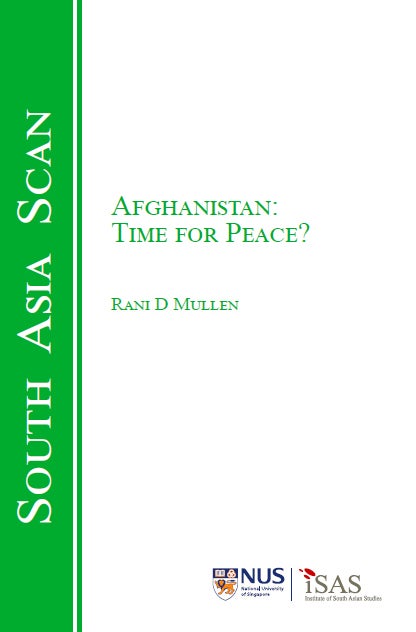
| Title: | Afghanistan: Time For Peace? |
| Author/s: | Rani D Mullen |
| Abstract: | In 2019, Afghanistan appears at a political precipice, with the Taliban controlling more territory than at any time since 2001 and the United States (US) administration talking to the Taliban in order to withdraw their troops, if possible, before the US elections in 2020. After arguably four decades of war – a war which has killed more than 32,000 Afghan civilians in the past decade – war-weary Afghans want peace, as do their international supporters. Yet, in the changing political and security climate, many worry that the significant gains achieved over the past 18 years, ranging from women’s rights and a more than doubling of school enrolment rates to a 20-year increase in life expectancy, might be sacrificed in the rush to negotiate a fragile peace. This situation requires urgent efforts amongst Afghan and international policy makers, analysts and researchers to better understand, analyse and propose ways of ensuring successful peace talks and indeed prevent a return of a Taliban government, as well as longer-term stability in the region. |
| Date: | 24 April 2019 |
| Read More |
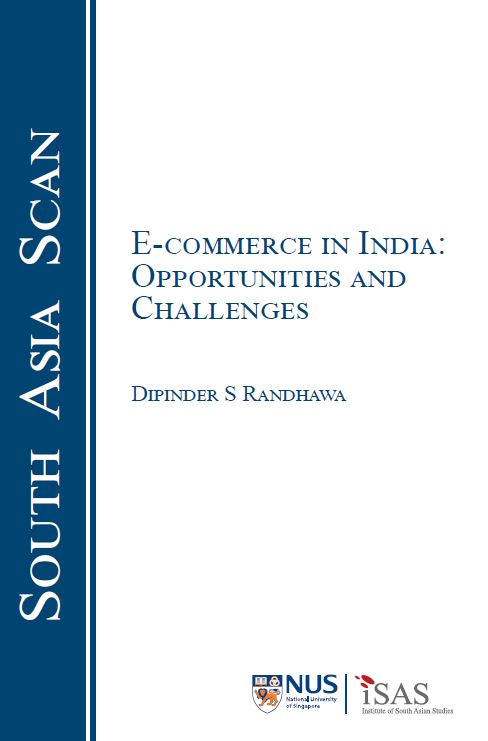
| Title: | E-commerce in India: Opportunities and Challenges |
| Author/s: | Dipinder S Randhawa |
| Abstract: | At rates exceeding 40 per cent per annum, the e-commerce sector in India is among the fastest growing in the world. It has the potential of enabling India to leap-frog from millions of tiny neighbourhood stores to a nationally- and, potentially, globally-connected online market. More importantly, the benefits for consumers and producers could be transformational, bringing millions of tiny enterprises operating in isolated communities into modern connected market-places, offering unprecedented choices to consumer, helping to modernise India’s inefficient logistics sector and encouraging the development of efficient value chains. Nevertheless, the future is also fraught with risks and challenges, including the vulnerability of small manufacturers and retailers, and the prospects of a few major e-commerce companies dominating markets. This issue of Asia Scan inquires into the reasons for the extraordinary growth of e-commerce in India, the challenges and risks that lie ahead, and the role for policymakers and regulators in shaping an efficient, fair and stable transition to the digital marketplace of the future. |
| Date: | 28 January 2019 |
| Read More |
Load more


